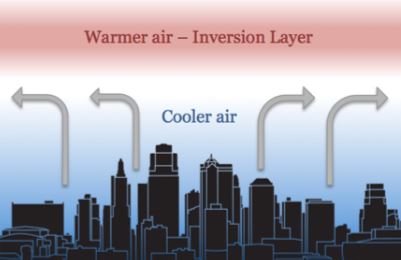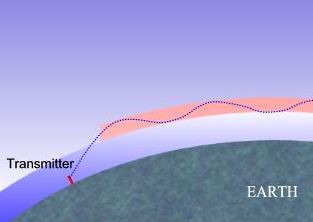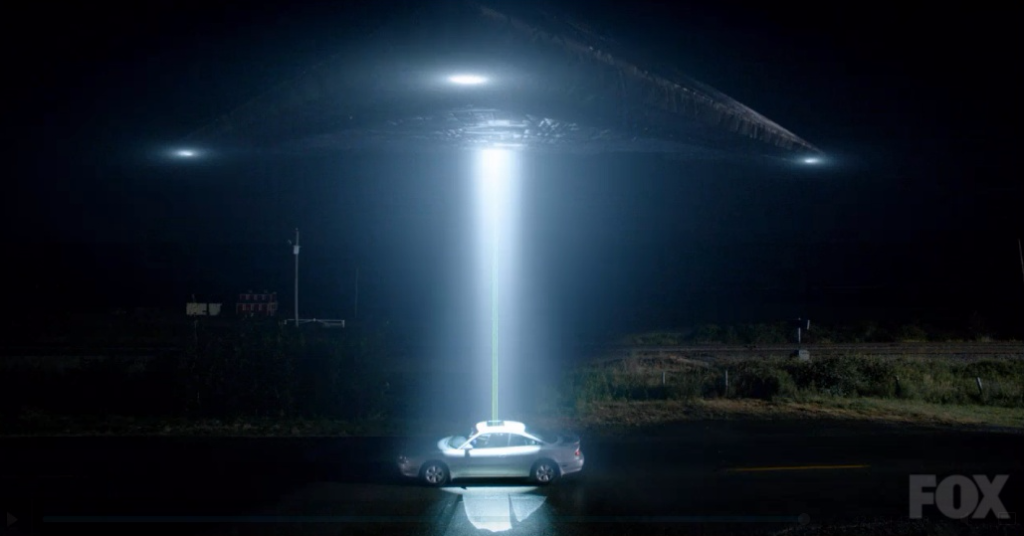In countless paranormal shows including The X-Files, whenever a UFO is about to get you -- hovering over your car or house -- the first symptom is that the radio goes haywire and stations you were once receiving, start to fuzz-out in a static melee. Then, various other automotive and home electronics start flashing in and out, before total failure preceding the inevitable light shaft.
Culturally, we've been primed to be creeped out whenever any of these symptoms show. Many of us driving around town had hairs raised on the back of the neck as it was discovered normally clear FM radio stations on the lower end (87FM to 93FM) and the higher end (104FM-108FM) were suddenly tough to tune-in. Some TV viewers using an antenna had trouble pulling in a reliable signal from normally strong stations. This effect seemed to happen most between about 1am and 5am.

That setup traps pollution making for poor air quality, and if strong enough, can bounce radio signals due to density changes. Cool air has a higher density than warm air, so as signals were broadcast from the tops of towers in the warm area, the transmissions would, "bounce off" of the cooler air below and go back out to the sky. Short-wave radio and HAM enthusiasts can tell you under these special conditions you can actually transmit much farther than normal, and receive signals from far-away continents you wouldn't normally be able. But for local viewers and listeners, it's not a, "good thing" because it makes it hard, if not impossible, to get your channels.

Yes, while they may have been able to pick up Houston TV signals in Corpus Christi or Dallas early this morning, those of us in Katy, The Woodlands and League City may have struggled. At time time of this event, temperatures were in the 60s at the top of the tower, while 1,500 feet below on the ground, in the cooler 50s. The signal could not make it to the surface, and instead was ducted (bounced) over the horizon to far away places before finally reaching the ground. (Sometimes those far-away cities experience interruption too even if they aren't in an inversion, because our signal may reach them when it normally doesn't. If we're on the same or similar frequency, the channels merge and a messy signal results.)
Next time you have trouble receiving a radio signal on a clear night, it's most likely not a flying saucer hovering over your car or home, but instead it's just the weather. Then again, most astrophysicists and astronomy buffs will tell you that it is statistically highly likely, if not a guarantee, that we are not the only 'intelligent' life in the galaxy. (Of course, whether 'they' are visiting us or not is up for debate.) So, I should rephrase and say that weather is, "most likely" the cause of your signal's interference.



